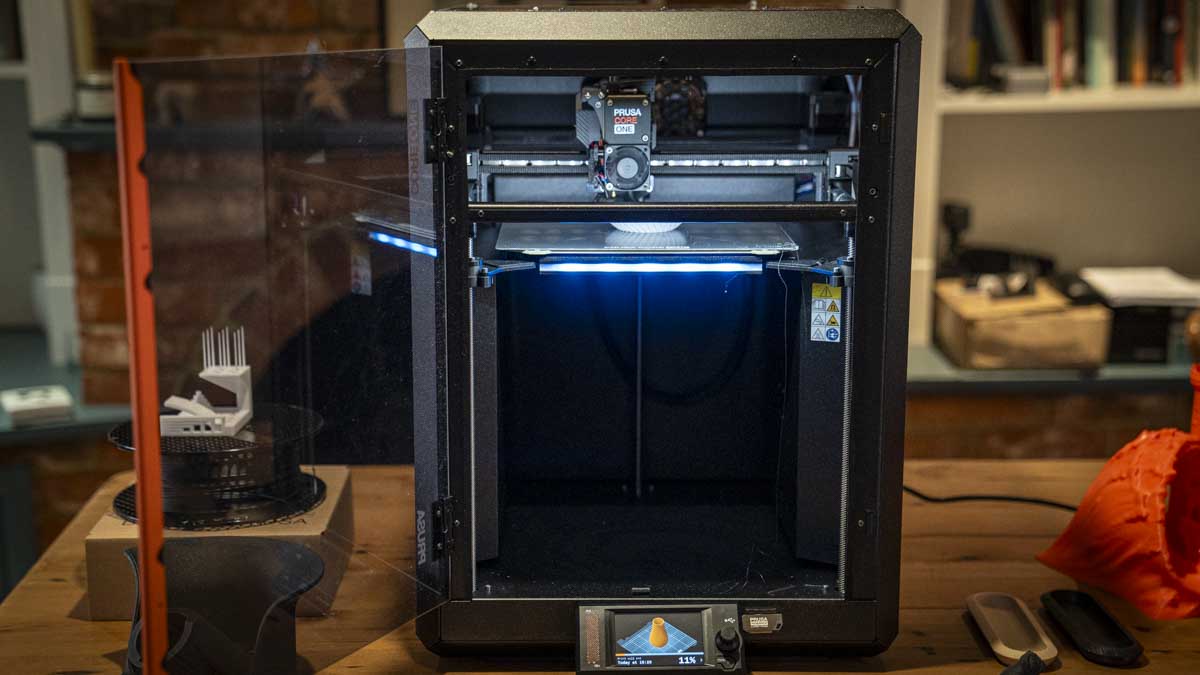Prusa CEO declares "open hardware desktop 3D printing is dead" - China blamed for causing the beginning of the end
Former open source champion Prusa now guards its designs with strict secrecy

Sign up for breaking news, reviews, opinion, top tech deals, and more.
You are now subscribed
Your newsletter sign-up was successful
- State-backed rivals have made open source 3D printing nearly impossible
- Chinese subsidies shift global competition in desktop 3D printer production
- Cheap Chinese patents create obstacles far beyond Europe’s market borders
The open source movement in 3D printing once thrived on shared designs, community projects, and collaboration across borders.
However, Josef Prusa, head of Prusa Research, has announced, “open hardware desktop 3D printing is dead.”
The remark stands out because his company long championed open designs, sharing files and innovations with the wider community.
Economic support and patent challenges
Prusa built his early business in a small basement in Prague, packing frames into pizza boxes while relying on contributions from others who shared his philosophy.
What has changed, he now argues, is not consumer demand but the imbalance created when the Chinese government labeled 3D printing a “strategic industry” in 2020.
In his blog post, Prusa cites a study from the Rhodium Group which describes how China backs its firms with grants, subsidies, and easier credit.
This makes it much cheaper to manufacture machines there than in Europe or North America.
Sign up to the TechRadar Pro newsletter to get all the top news, opinion, features and guidance your business needs to succeed!
The issue grows more complicated when looking at patents. In China, registering a claim costs as little as $125, while challenging one ranges from $12,000 to $75,000.
This gap has encouraged a surge of local filings, often on designs that trace back to open source projects.
Prusa’s earlier machines, such as the Original i3, proudly displayed components from partners like E3D and Noctua, embodying a spirit of community, but were also easy to copy, with entire guides appearing online just months after release.
The newest Prusa printers, including the MK4 and Core ONE, now restrict access to key electronic designs, even while offering STL files for printed parts.
The Nextruder system is fully proprietary, marking a clear retreat from total openness.
Prusa argues Chinese firms are effectively locking down technology the community meant to share - as while a patent in China does not block his company from selling in Europe, it prevents access to the Chinese market.
A bigger risk emerges when agencies like the US Patent Office treat such patents as “prior art,” creating hurdles that are expensive and time-consuming to clear.
Prusa cited the case of the Chinese company, Anycubic, securing a US patent on a multicolor hub that appears similar to the MMU system his company first released in 2016.
Years earlier, Bambu Lab introduced its A1 series, also drawing inspiration from the same concept.
Anycubic now sells the Kobra 3 Combo with this feature, raising questions about how agencies award patents and who holds legitimate claims.
Meanwhile, Bambu Lab faces separate legal battles with Stratasys, the American pioneer whose patents once kept 3D printing confined to costly industrial use.
Declaring the end of open hardware may be dramatic, but the pressures are real.
Between state subsidies, permissive patent rules, and rising disputes, the foundation of open collaboration is eroding.
Via Toms Hardware
You might also like
- These are the best printers available
- We've also listed the best business VPNs to choose from
- Devs believe AI is going to kill 'most or all' of their company's marketing dept

Efosa has been writing about technology for over 7 years, initially driven by curiosity but now fueled by a strong passion for the field. He holds both a Master's and a PhD in sciences, which provided him with a solid foundation in analytical thinking.
You must confirm your public display name before commenting
Please logout and then login again, you will then be prompted to enter your display name.